

Table of contents:
Thinking about moving to Japan? You're not alone. Each year, thousands of people consider relocating to this fascinating country. Drawn by its unique culture, advanced technology, and high quality of life. But moving to Japan requires careful planning and preparation.
This essential guide will answer the most important questions you have about migrating to Japan, from understanding visa requirements and finding suitable accommodation, to adapting to the local culture and navigating daily life in Japan.
Whether you're planning a short-term stay or making Japan your long-term home, this article provides the practical advice you need for a smooth transition.

1. Benefits and Challenges of Moving to Japan
So why do you want to move to Japan? Let's weigh the key benefits and challenges, so that we can think about this clearer. Here are two lists to help you weigh the pros and cons of life in Japan.
1.1. Key Benefits of Moving to Japan
Experience Rich Culture and Traditions
Japan has a rich culture going back almost 2,000 years. From tea ceremonies to kimonos and ancient festivals, Japanese culture offers endless exploration.
High Standard of Living
Japan boasts a high standard of living, with safe cities, world-class public transport, and a reliable healthcare system.
Career Opportunities
For skilled professionals and English speakers, Japan offers roles in teaching, IT, engineering, and more. The country is a hub for innovation and technology.
Excellent Public Services
Enjoy well-maintained infrastructure, efficient trains, and some of the cleanest cities in the world.
Access to Natural Beauty
From serene temples and mountains to stunning beaches, Japan’s diverse landscape provides incredible travel opportunities.

1.2. Challenges of Moving to Japan
Japanese Language Barrier
While English is widely taught, English ability is very low in the general population. Daily life in Japan requires some degree of Japanese language skills. Learning basic Japanese is a must. I could not have survived this long without Japanese language skills... Although I some some people who have...
Local Insight:
If you're interested in learning Japanese, I recommend that you get started using a language learning app. Romancing Japanese has an affiliate link offer to Rocket Languages that could help you start learning today!Adjustment to Japanese Culture
Adapting to Japan's collectivist culture, work ethics, and unspoken social rules can be a serious challenge for newcomers. I cannot stress this enough, navigating Japanese culture is difficult. Your lack of cultural understanding can cause friction at work and leave you feeling socially isolated.
Cost of Living in Japan
Japan has a low cost of living compared to other countries. Especially, when you look the cost of living in Japan vs the US, UK, and Australia. However, salaried and wages in Japan are also comparatively low. Therefore, low Japanese incomes can make cities like Tokyo and Osaka seem expensive. If you want to know more, check out our article about living in Japan on $2,000 a month.
Visa Requirements to Get into Japan
Navigating Japan’s visa process can be complex, and eligibility criteria vary. If you have ever been charged with a crime (I'm not judging!), you won't be given a visa.
Moving to Japan offers opportunities and experiences, but preparation is key. Understanding the benefits and challenges will help you make an informed decision and start your journey off on the right foot.

2. Which Japanese Visa Do You Need?
Japan's aging population means that Japan is looking to attract more foreign workers. However, you need to be eligible to apply for a Japanese visa if you want to live in Japan. Let me break down the main types I see people applying for:
- Research the visa you need or the visa that fits your needs best.
- DO NOT rely on the advice of random people online, such as Reddit. This is how misinformation about Japanese visa spread.
2.1. A Quick Comparison of Japanese Visa Types
| Visa Type | Who’s It For? | Max Stay | Basic Requirements |
| Highly Skilled Professional Visa (高度専門職ビザ - Kōdo senmon-shoku biza) | Those who fall within the scope of current foreign acceptance and are recognized to have advanced qualifications and abilities. | 5 years | Sponsorship in Japan |
| Work Visa (就業ビザ - shuugyou biza) | Working Professionals - This includes categories like teachers, professionals in arts, lawers, doctor/nurse, researcher, writers, etc. | 1 - 5 years | Job offer, Certificate of Eligibility |
| General Visa (一般ビザ - ippan biza) | Includes cultural activities, international student, extended family | 3 months - 4 years | Documents that prove your identity, financial ability, and travel plans |
| Special Visa (特定ビザ - tokutei biza) | Spouse of Japanese national, domestic servants such as diplomats, working holiday entrants, paid internships, nurses based on EPA, care worker candidates, etc. | Varies by case | Documents for this visa depend on the circumstances of each case. |
2.2. How to Apply for a Japanese Visa
First thing you'll need is a Certificate of Eligibility (在留資格認定証明書 - zairyu shikaku nintei shomeisho), or COE. Here's what you'll need to prepare:
- Valid passport
- Visa application form
- Recent photograph (Passport size)
- Certificate of Eligibility
- Supporting documents based on your visa type
The processing usually takes 5 business days after submitting everything. I recommend starting the process about 1.5 months before you plan to leave. This gives you enough time if any issues come up.
The visa costs aren't too bad - single-entry visas cost ¥3,000 (about $22 USD), while multiple-entry visas are ¥6,000 (around $43 USD).
For work visas, you'll need either:
- A bachelor's degree, or
- 10 years of relevant work experience
Your Japanese employer needs to sponsor your application by providing:
- Company registration papers
- Financial statements
- Your job description
- Employment contract
Popular Articles

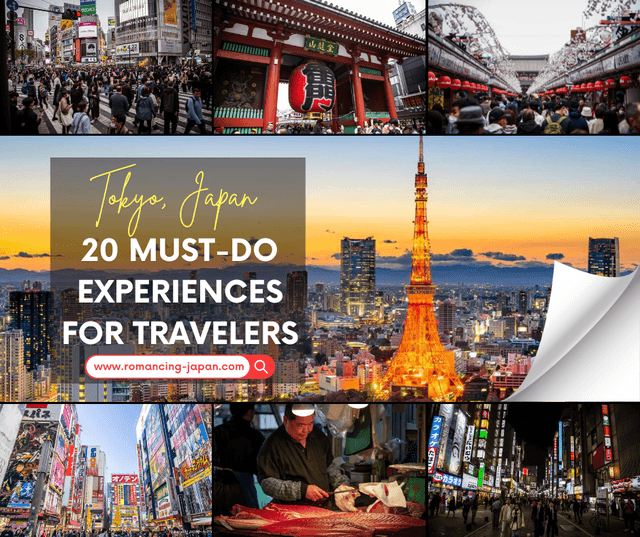
Tokyo Favorites: 20 Must-Do Experiences for Travelers
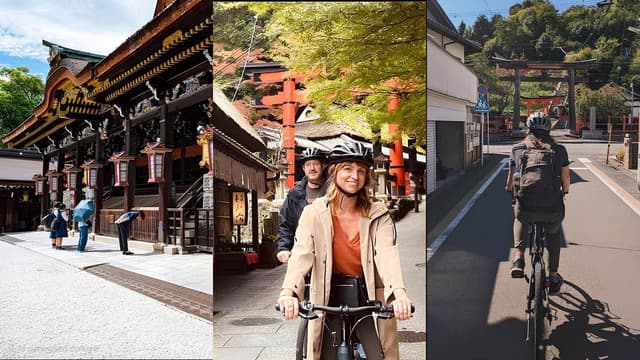
Kyoto Bike Tours: Discover the City’s Hidden Gems with Noru
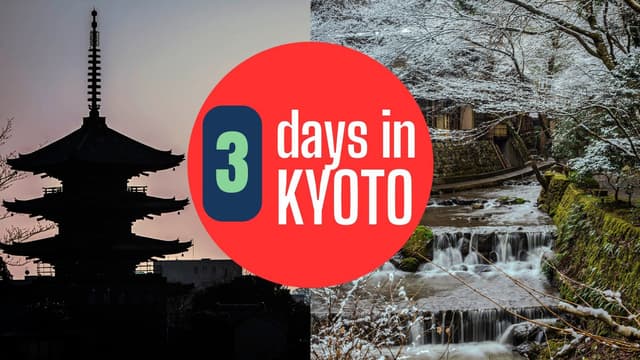
Kyoto 3-Day Itinerary: Best Things to Do for First-Time Visitors

Universal Studios Japan Tickets: Your Guide to Visiting USJ
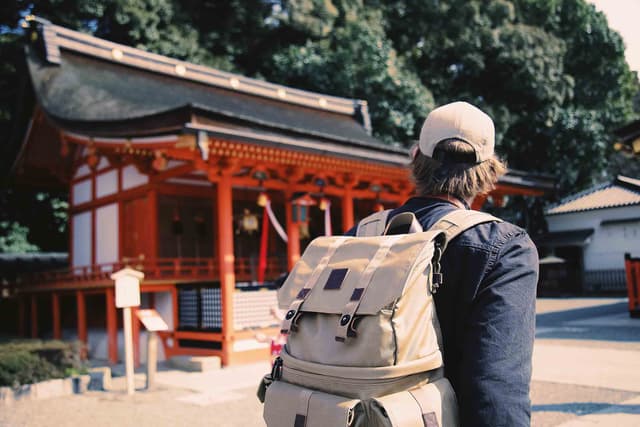
Find Out What Japan Really Thinks of Foreign Tourists

Manga Explained: Top Recommendations for Beginners
3. How to Apply for Accommodation in Japan
When I moved back to Japan for work, I had secured a job that provided a company apartment. At the time this was super convenient for me, but it also had its pros and cons:
+ I didn't have to spend time dealing with Japanese real estate agents.
+ It cut out expensive initial costs for moving into a Japanese apartment.
- Later on moving out of the company apartment proved to be a challenge.

3.1. Essential Documents for Rent Property in Japan
WARNING: You will NOT be able to apply for rental property until you are in Japan and officially employed by a Japanese company.
You'll need following documents to help the application process:
- Foreign registration card
- Confirmation of employment (this can be obtained from your employer)
- Bank statements
- Tax documents
- Extra paperwork if you're self-employed
3.2. What are the Costs of Moving into a Japanese Property?
Many years ago, I moved into a small house that cost only ¥90,000 (about $580 USD) in monthly rent. However, in order to move in, I had to pay about ¥500,000 (about $3,220 USD) for move-in costs.
When move to Japan, you will discover that one of your biggest costs of living you will face are the various fees that come with renting a Japanese property.
- First month of rent
- Key money (礼金 - reikin): Equal to 1-2 month of rent)
- Security deposit (敷金 - shikikin): Returned at the end of lease
- Brokerage fee (仲介手数料 - chuukai tesuuryo): Equal to about 1 month of rent
- Guarantor commission fee (保証委託料 - Hoshou itakuryou): Only for renters using a guarantor company.
3.3. No Guarantor Real Estate Agencies
There are real estate companies that offer rental properties - especially Japanese apartments - that don’t require a guarantor. However, these rental properties may be more expensive. Companies do not require a guarantor:
These agencies also offer short-term contracts for people who are looking for a temporary place to live while hunting for a permanent home.
Monthly apartments can cost anywhere between ¥70,000 to ¥200,000. Companies like Leopalace21 offer furnished rooms with simpler contracts.
4. Essential Documents for Moving to Japan
Getting your paperwork right in Japan is crucial. I learned this the hard way when I couldn't open a bank account because my documents weren't in order. Let me share what you really need to prepare.
- Birth Certificate: This is optional, but good to have a copy.
- Graduation degrees and educational certificates: You will need these when looking for jobs. I use these more than any other documents. You will also need a copy of your course results because companies will request them for job application.
- Medical records: Your doctor will consider this very helpful when treating you.
4.1. Important Health Records to Show Japanese Doctors
Japanese doctors are very thorough and need detailed medical history to treat you properly.
I have chronic asthma, and my doctor in Japan has managed my symptoms better than any doctor I ever visited in Australia.
Before leaving your country, gather:
- A letter from your doctor about any ongoing treatments.
- Your current medication list and prescriptions.
- Complete vaccination records.
- Recent test results.
Local Insight:
Bring at least 3 months' worth of medications you take regularly. Japanese drug laws are very strict and medications might be different from what you use back home. Getting new prescriptions may take time.
5. Cultural Preparation
When I first moved to Japan, I thought knowing a few Japanese words would be enough. I was wrong. Cultural misunderstandings led to some awkward moments that could have been avoided. I recommend that you learn Japanese language. Let me share what I've learned about preparing for life in Japan.
5.1. Learning Basic Japanese Phrases
While many Japanese people understand basic English, relying only on English can isolate you.
Start with these essential phrases:
- こんにちは (Konnichiwa) - Hello
- すみません (Sumimasen) - Excuse me/Sorry
- ありがとうございます (Arigatou gozaimasu) - Thank you
- はい/いいえ (Hai/iie) - Yes/No
- わかりません (Wakarimasen) - I don't understand
If you cannot yet speak Japanese, I encourage you to check out our article that covers basic Japanese communication phrases. You might find it really helpful!
5.2. Understanding Japanese Customs
Here's what took me months to learn through trial and error: Proper manners are highly valued in Japan.
- Always remove shoes before entering homes
- Bow when greeting others (depth shows respect level)
- Never eat while walking (except at festivals)
- Keep your voice down on trains
- Being late is considered deeply disrespectful

5.3. Making Friends in Japan
Moving to Japan can feel lonely at first. I struggled to make meaningful friendships until I discovered these approaches:
- Language exchange meetups - Great for meeting locals interested in cultural exchange.
- Sports clubs and hobby groups - I joined a hiking group and met some of my closest friends there.
- Social networking events - Regular gatherings where you'll meet both Japanese locals and other foreigners.
Remember, making friends in Japan takes time. Japanese people often start relationships formally before showing their casual side. Don't get discouraged if people seem distant at first - it's part of the culture, not personal rejection.

6. Healthcare and Insurance in Japan
If you're going to live in Japan, then you will need to understand the basics about healthcare coverage. Without this, going to a doctor or hospital can be be very expensive in Japan.
6.1. National Health Insurance (NHI)
All residents in Japan, including foreigners staying for more than three months, must enroll in the National Health Insurance (NHI) system. This public insurance covers about 70% of medical costs, leaving the remaining 30% as out-of-pocket expenses for you.
Enrollment is usually done at your local municipal office after getting your residence card. Premiums are income-based, ensuring affordability for various income levels.
6.2. Employees' Health Insurance (EHI)
If you're employed full-time by a Japanese company, you may be enrolled in the Employees' Health Insurance (EHI) scheme. Under EHI, premiums are shared between you and your employer, and the coverage often extends to dependents.
6.3. Private Health Insurance
While NHI and EHI provide comprehensive coverage, some residents opt for private health insurance to cover services not included in public insurance, such as private rooms during hospitalization or advanced treatments.
7. Education and Language Learning Opportunities
7.1. University Admission for International Students
Japan offers a range of opportunities for international students seeking higher education. Admission requirements typically include:
- Academic transcripts and certificates
- Proof of Japanese or English language proficiency (e.g., JLPT, TOEFL)
- Statement of purpose or research plan
- Letters of recommendation
Some universities offer programs taught entirely in English, catering to international students. It's essential to check the specific requirements of each institution.
7.2. Japanese Language Schools
If you want to improve your Japanese language skills, numerous schools across Japan offer courses ranging from beginner to advanced levels. Enrollment typically requires:
- Application form and fee
- Copy of passport and visa
- Proof of financial stability
Some schools assist with student visa applications for long-term courses.
FAQs
What are the benefits and challenges of moving to Japan?
Japan offers a rich cultural experience, a high standard of living, and exciting career opportunities. However, newcomers may face challenges like the language barrier and the need to adapt to different social rules. With good preparation and learning some basic Japanese, many of these challenges can be managed.
Which visa do I need to move to Japan?
The type of visa you need depends on why you are moving, whether for work, study, or family reasons. Options include the Highly Skilled Professional Visa, Work Visa, or General Visa, each with its own set of requirements. It’s important to check the latest rules and prepare your documents early to ensure a smooth application process.
What should I know about finding accommodation in Japan?
Finding a place to live in Japan can be challenging due to strict financial documentation and various fees like key money and security deposits. You might start with a company apartment, which can simplify the process, or search for rentals where you’ll need proof of employment and other paperwork. Researching your options and understanding the rental process can help you avoid surprises.
What documents should I prepare before moving to Japan?
Before you move, it is wise to organize important documents such as your passport, birth certificate, and educational records. Medical documents like vaccination records, prescriptions, and recent test results are also essential. Having your paperwork in order will help you handle tasks like opening bank accounts and applying for jobs more easily.
How can I prepare for the cultural differences in Japan?
Learning basic Japanese phrases can help you communicate better and feel more at home in Japan. It is important to understand local customs such as bowing, removing shoes indoors, and proper behavior on public transport. Engaging in language exchange meetups or cultural events can also ease your transition into Japanese society.
Loading Comments...

James Saunders-Wyndham
I've been immersed in Japanese culture and daily life for over 30 years and am proud to call Japan my home. Originally from Australia, my journey has taken me from teaching at Japanese universities to traveling extensively across the country, uncovering its hidden gems. As a web developer, I built Romancing Japan from the ground up to share these experiences with you. Whether it's the charm of old Kyoto, the pulse of Tokyo, or the tranquility of the countryside, I love helping others discover the magic of Japan—one story at a time.
Popular Articles
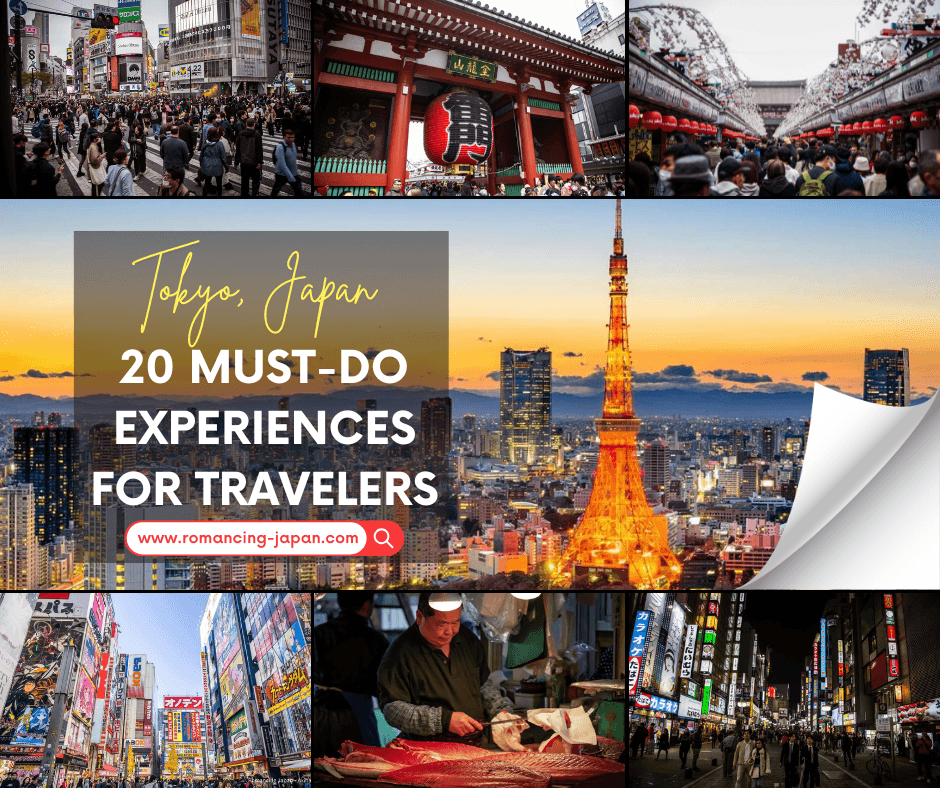
Tokyo Favorites: 20 Must-Do Experiences for Travelers
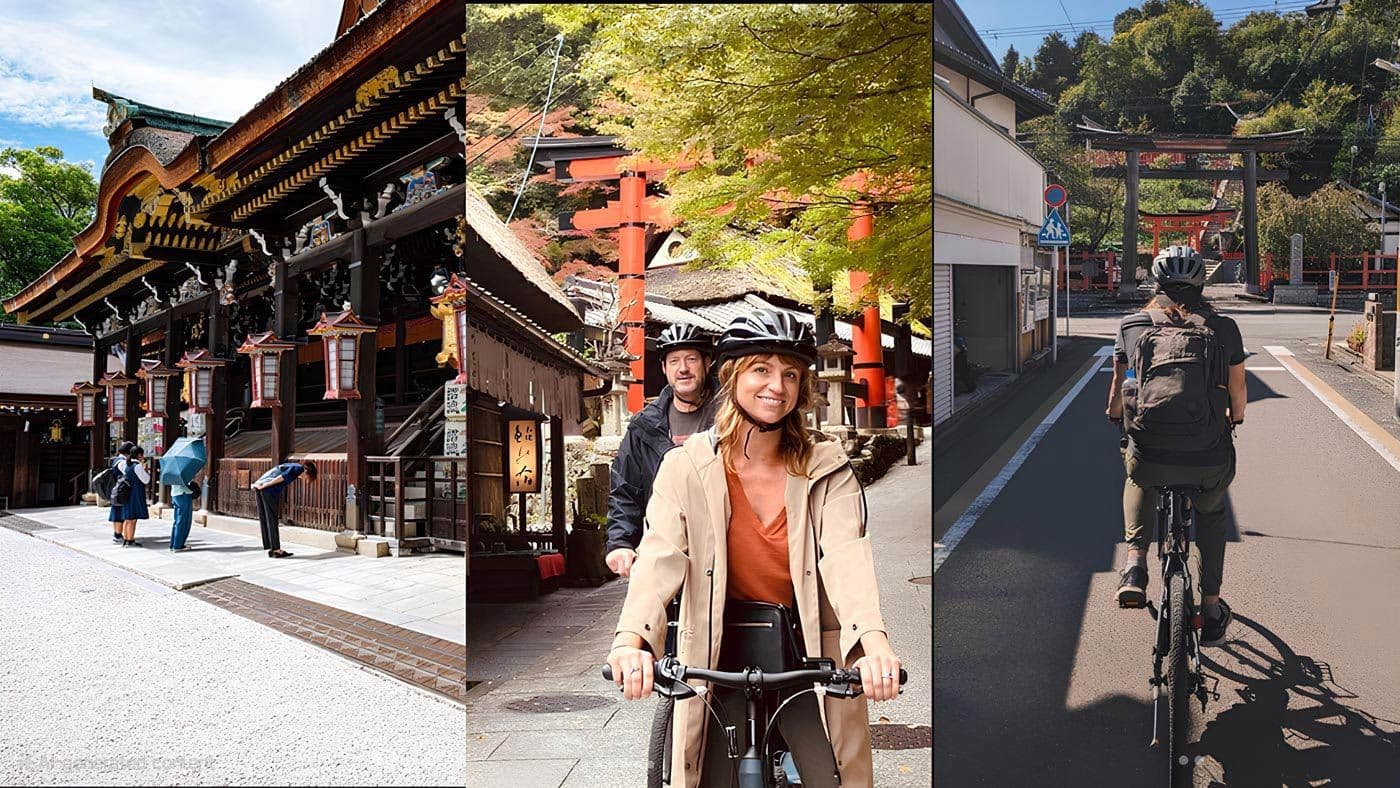
Kyoto Bike Tours: Discover the City’s Hidden Gems with Noru
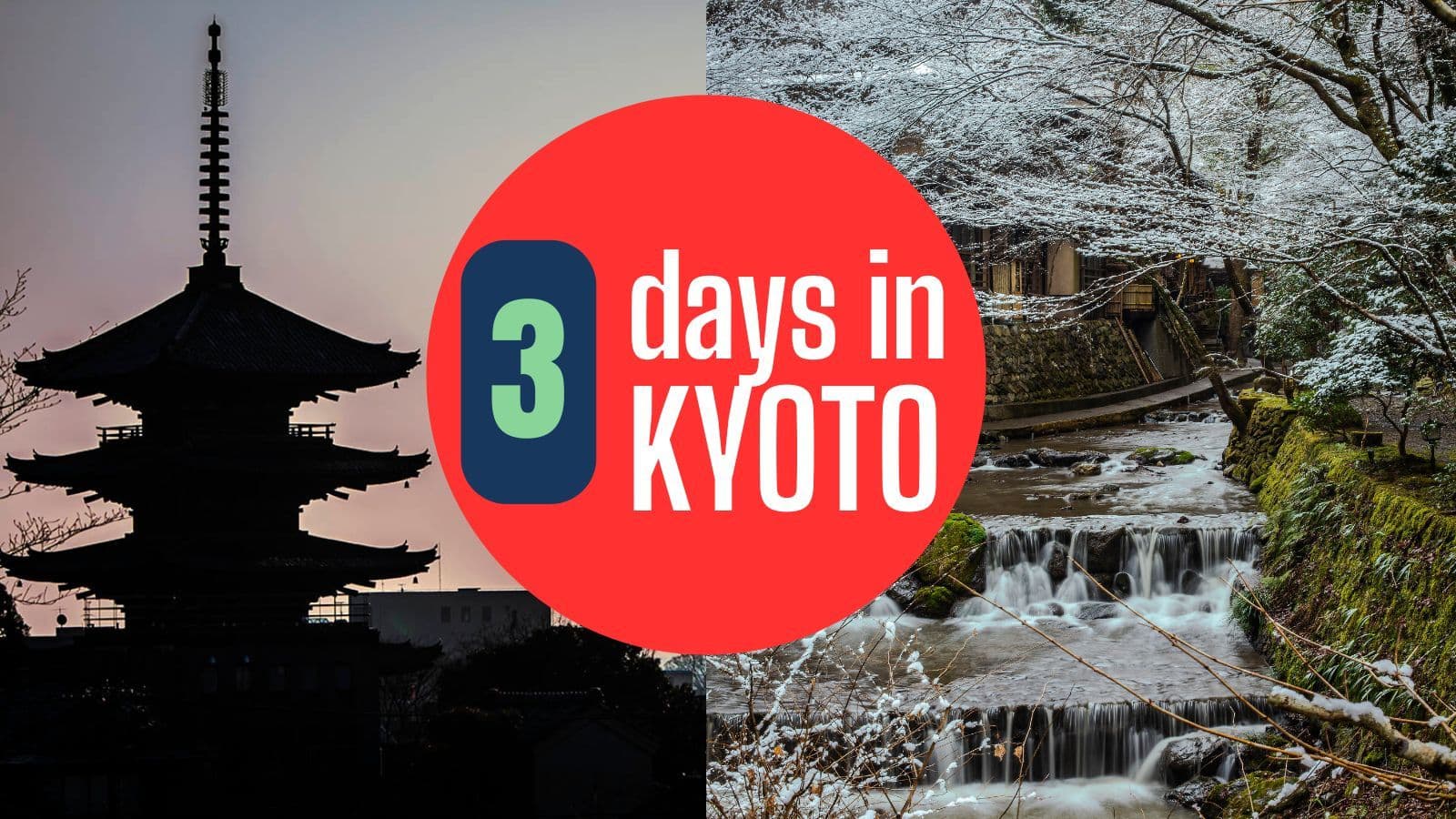
Kyoto 3-Day Itinerary: Best Things to Do for First-Time Visitors

Universal Studios Japan Tickets: Your Guide to Visiting USJ

Find Out What Japan Really Thinks of Foreign Tourists
